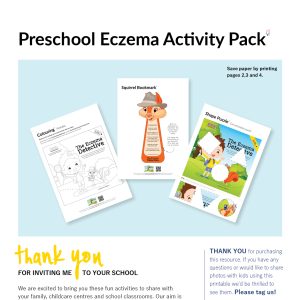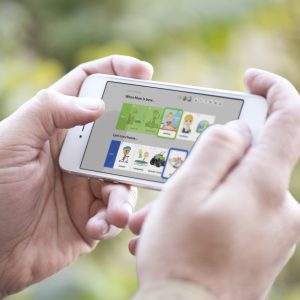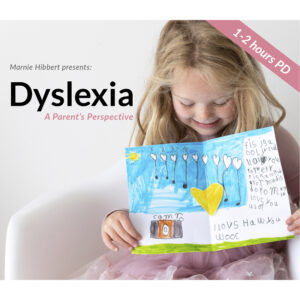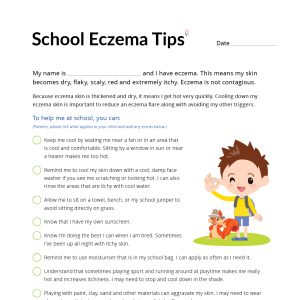Description
Does your child struggle with separation anxiety?
Do they find it hard to start a conversation with their peers?
Are they a struggling reader, perhaps dyslexic?
Is ‘school can’t ‘or ‘school refusal’ a problem?
LunchBox notes have been around forever because there are so many benefits (see list below) to using them. The difference with our LunchBox notes is that they were designed for neurodiverse* kids first and foremost.
If your child or someone you know is neurodiverse with; Autism Spectrum Disorder (ASD), ADHD, or has learning disabilities,** you know there are daily struggles.
These sets of cards have carefully been designed to support neurodiverse kids minds, giving a support tool that parents can use straight out of the ‘mini lunch box’ each day. I wanted to create a VERY easy connection tool for parents, especially those with kiddos on the spectrum (as we don’t need ‘another thing to do’ on our very full plates already!).
All that is required is to pull out a card and add it to their lunchbox. All cards are positive, empowering, thoughtful and kid friendly.
With 80 different messages in each set, it means 80 days of school are covered. By repeating 1 set of cards 2.5*** times, you have an entire year met! Sharing sets with siblings extends the usage. As your children grow, there are sets that will meet the new stage or interest that they’re at.
Currently we have 2 sets that will be available in November 2024, with 6 more sets on the way. Follow Butterfly Publishing on Facebook or Instagram for updates.
PRE READERS or EARLY READERS: Best suited to ages 3-6 years.
Includes: Minimal Decodable Words, Funny Pictures and Simple Games.
What exactly is in the PRE READERS set?
- 1 x Mini plastic lunch box holder 95mm (length) x 65mm (width) x 25mm (depth)
- 1 x self-adhesive pocket
- 1 x self-adhesive treat bag
- 12 x eye stickers
- 40 x cards Similar size to business cards. 86mm (length) x 52mm (width)
- 1 x ‘Happy birthday’ card
- 1 x ‘Enjoy your first day’ card. (First day at school, first day of term, first day back after being sick)
- 6 x Semi blank cards (for writing a personalised message)
- 40 x games cards
PRIMARY: Best suited to 6-13 years.
Includes: Inspirational Quotes, Positive Affirmations, Thoughtful Wisdom (to help support kids manage mean behaviour), Interesting Facts, Would You Rather Questions and Fun Jokes.
What exactly is in the PRIMARY set?
- 1 x Mini plastic lunch box holder 95mm (length) x 65mm (width) x 25mm (depth)
- 1 x self-adhesive pocket
- 1 x self-adhesive treat bag
- 12 x eye stickers
- 40 x cards Similar size to business cards. 86mm (length) x 52mm (width)
- 1 x ‘Happy birthday’ card
- 1 x ‘Enjoy your first day’ card. (First day at school, first day of term, first day back after being sick)
- 6 x Semi blank cards (for writing a personalised message)
- ? x games cards
- ? x quote cards
- ? x joke cards
- ? x challenge cards
BENEFITS
Encouragement Lunchbox notes provide encouragement and support throughout their day. A simple note can uplift their spirits and remind them that you’re thinking of them, even when you’re not physically present.
Creating a Strong Bond These little gestures show your kids that you’re always there for them.
Boosting Self-Esteem Positive affirmations in lunchbox notes can boost your child’s self-esteem. Knowing they are loved and appreciated contributes to their overall well-being.
Improving Communication Skills Reading the notes helps improve their reading skills. Imagine your dyslexic child reading a short decodable sentence every day? Every small bit of practice adds up. Knowing your child has voluntarily read a fun card is a nice thought for you as a parent. You can also use these cards as a reminder for your child that they can achieve things. Plus, it gives them something to talk about with friends at lunch. Imagine sharing a fact or a joke with a friend at lunch time? This will help guide our children who may be shy, unsure of how to begin a conversation or could also be used to change conversation topics to something your neurodiverse child is interested in.
Learning Imagine learning a new fact every day at school for a year. That equates to 198 new facts!! Only giving 1 interesting fact each day allows them to ponder that 1 fact increasing the chances of it being loaded into their long-term memory. It also can inspire them to learn more about that specific subject they may not have considered previously.
Modeling Thoughtfulness and Care By including lunchbox notes, you demonstrate thoughtfulness and care, teaching your child to be kind and considerate towards others.
———————————————
*Neurodiversity encompasses the idea that people experience and interact with the world in diverse ways. It recognizes that there is no single “right” way of thinking, learning, or behaving. Instead, differences are valued and not viewed as deficits.
———————————————
**Learning disabilities are disorders that affect a person’s ability to understand or use spoken or written language, perform mathematical calculations, coordinate movements, or direct attention. These conditions are neurodevelopmental in nature and can significantly impact learning. Here are some common types of learning disabilities:
Dyslexia: The most prevalent learning disability, dyslexia involves difficulty with speaking, reading, writing, or understanding words. It affects vocabulary development, grammar, and reading comprehension.
Dysgraphia: People with dysgraphia struggle with writing due to issues related to vocabulary, spelling, grammar, memory, and critical thinking. Poor handwriting and challenges in simultaneous thinking and writing are common.
Dyscalculia: Also known as “math dyslexia,” this condition affects mathematical skills. Individuals with dyscalculia may struggle with numbers, concepts, reasoning, mental math, and applying mathematical formulas.
Auditory Processing Disorder (APD): APD causes difficulties in processing sounds. The brain misinterprets auditory information received by the ear, leading to confusion in distinguishing sounds or their order.
Language Processing Disorder (LPD): A subset of APD, LPD involves difficulties in processing spoken language. Individuals may struggle to attach meaning to sound groups representing words, sentences, and stories2.
———————————————
***There are 198 school days in a year in Australia. Term 1, 2, and 3 each have 49 school days, while Term 4 has 51 school days. Source: https://education.nsw.gov.au/
———————————————








